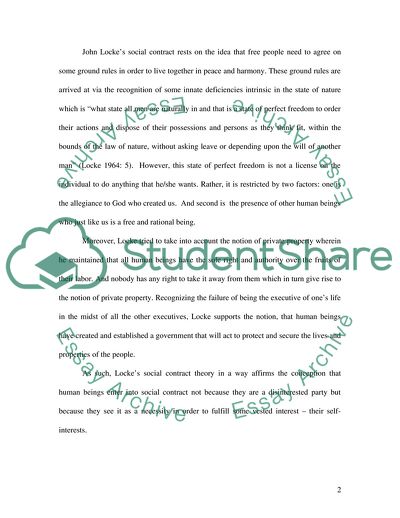Cite this document
(The Veil of Ignorance Assignment Example | Topics and Well Written Essays - 2000 words, n.d.)
The Veil of Ignorance Assignment Example | Topics and Well Written Essays - 2000 words. https://studentshare.org/philosophy/1705323-rawls-calls-himself-a-contractarian-but-his-theory-is-hardly-like-traditional-contract-theory-in-what-ways-does-he-depart-from-a-theory-like-that-of-locke-di
The Veil of Ignorance Assignment Example | Topics and Well Written Essays - 2000 words. https://studentshare.org/philosophy/1705323-rawls-calls-himself-a-contractarian-but-his-theory-is-hardly-like-traditional-contract-theory-in-what-ways-does-he-depart-from-a-theory-like-that-of-locke-di
(The Veil of Ignorance Assignment Example | Topics and Well Written Essays - 2000 Words)
The Veil of Ignorance Assignment Example | Topics and Well Written Essays - 2000 Words. https://studentshare.org/philosophy/1705323-rawls-calls-himself-a-contractarian-but-his-theory-is-hardly-like-traditional-contract-theory-in-what-ways-does-he-depart-from-a-theory-like-that-of-locke-di.
The Veil of Ignorance Assignment Example | Topics and Well Written Essays - 2000 Words. https://studentshare.org/philosophy/1705323-rawls-calls-himself-a-contractarian-but-his-theory-is-hardly-like-traditional-contract-theory-in-what-ways-does-he-depart-from-a-theory-like-that-of-locke-di.
“The Veil of Ignorance Assignment Example | Topics and Well Written Essays - 2000 Words”. https://studentshare.org/philosophy/1705323-rawls-calls-himself-a-contractarian-but-his-theory-is-hardly-like-traditional-contract-theory-in-what-ways-does-he-depart-from-a-theory-like-that-of-locke-di.


